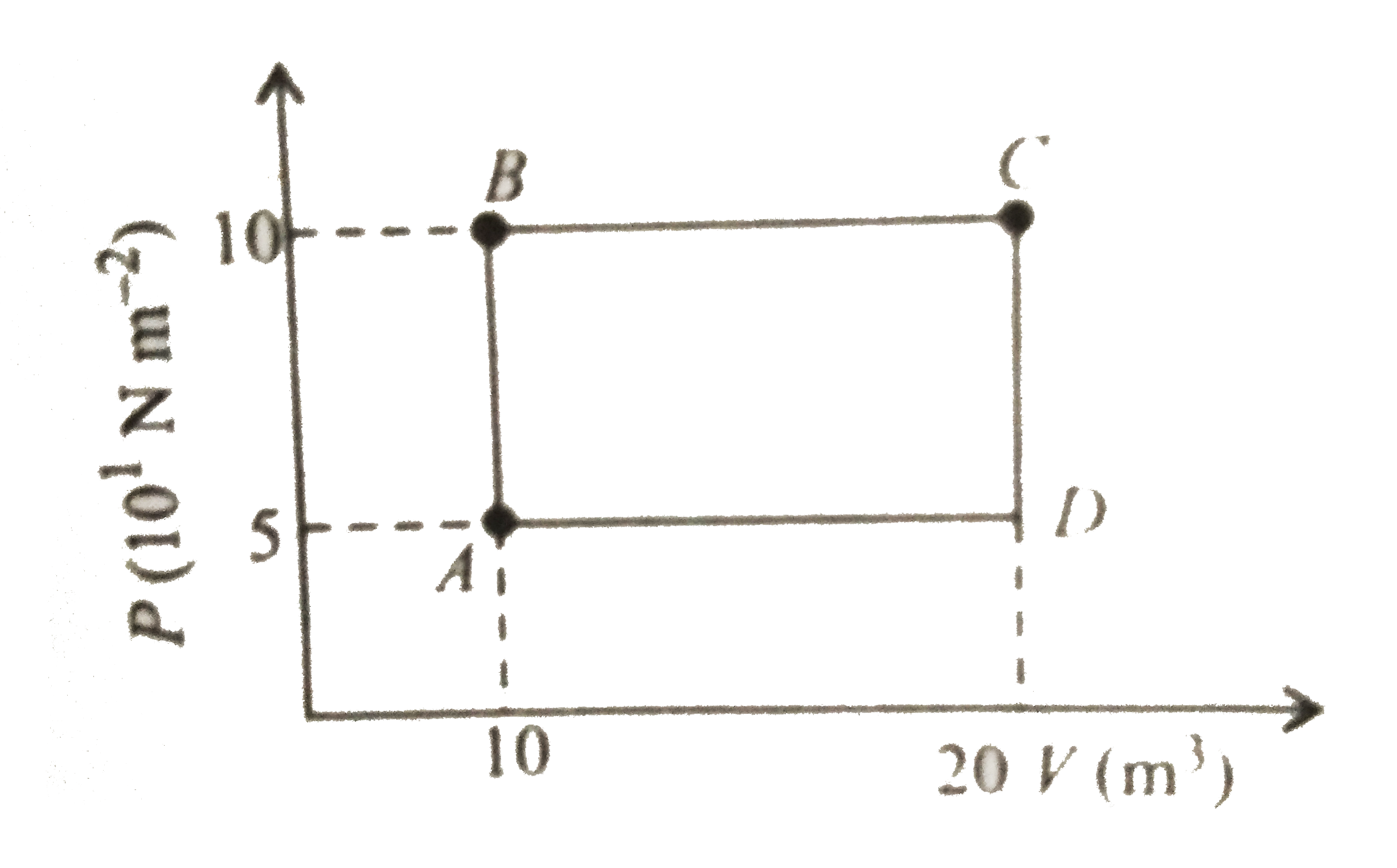A
B
C
D
Text Solution
Verified by Experts
The correct Answer is:
Topper's Solved these Questions
Similar Questions
Explore conceptually related problems
OP TANDON-MISCELLANEOUS (TOPICS OF GENERAL INTEREST)-SET-VI: Problems on graphical aptitude
- A sample of 2kg of helium (assumed ideal) is taken through the process...
Text Solution
|
- An ideal diatomic gas is caused to pass through a cycle shown on the P...
Text Solution
|
- A heat engine carries one mole of an ideal mono-atomic gas around the ...
Text Solution
|
- One mole of an ideal mono-atomic gas is caused to go through the cycle...
Text Solution
|
- A thermodynamic system consists of a cylinder-piston attangement with ...
Text Solution
|
- A cyclic process ABCA is shown in the V-T diagram process on the P-V
Text Solution
|
- The following are the P-V diagram for cyclic process for a gas. In whi...
Text Solution
|
- The graph betwene P and V at constant temperature should look like
Text Solution
|
- In P-V diagram shown below,
Text Solution
|
- The P - V graph of an ideal gas cycle is shown here as below. The adia...
Text Solution
|
- An ideal gas is taken around the cycle ABCA shown in P - V diagram. Th...
Text Solution
|
- An ideal monoatomic gas is taken round the cycle ABCDA as shown in the...
Text Solution
|
- Four curves A,B,C and D are drawn in figure for a given amount of gas....
Text Solution
|
- A given mass of gas expands from state A to state B by three paths 1,2...
Text Solution
|
- A thermodynamic process is shown in Fig. The pressures and volumes cor...
Text Solution
|
- In the pressure-volume diagram given below, the isochoric, isothermal,...
Text Solution
|
- Heat energy absorbed by a system in going through a cyclic process sho...
Text Solution
|
- The pressure -temperature (P-T) phase diagram shown below corresponds ...
Text Solution
|
- Graph for specific heat at constant volume for a monoatomic gas
Text Solution
|
- A cyclic process ABCD is shown in the P-V diagram. Which of the follow...
Text Solution
|
